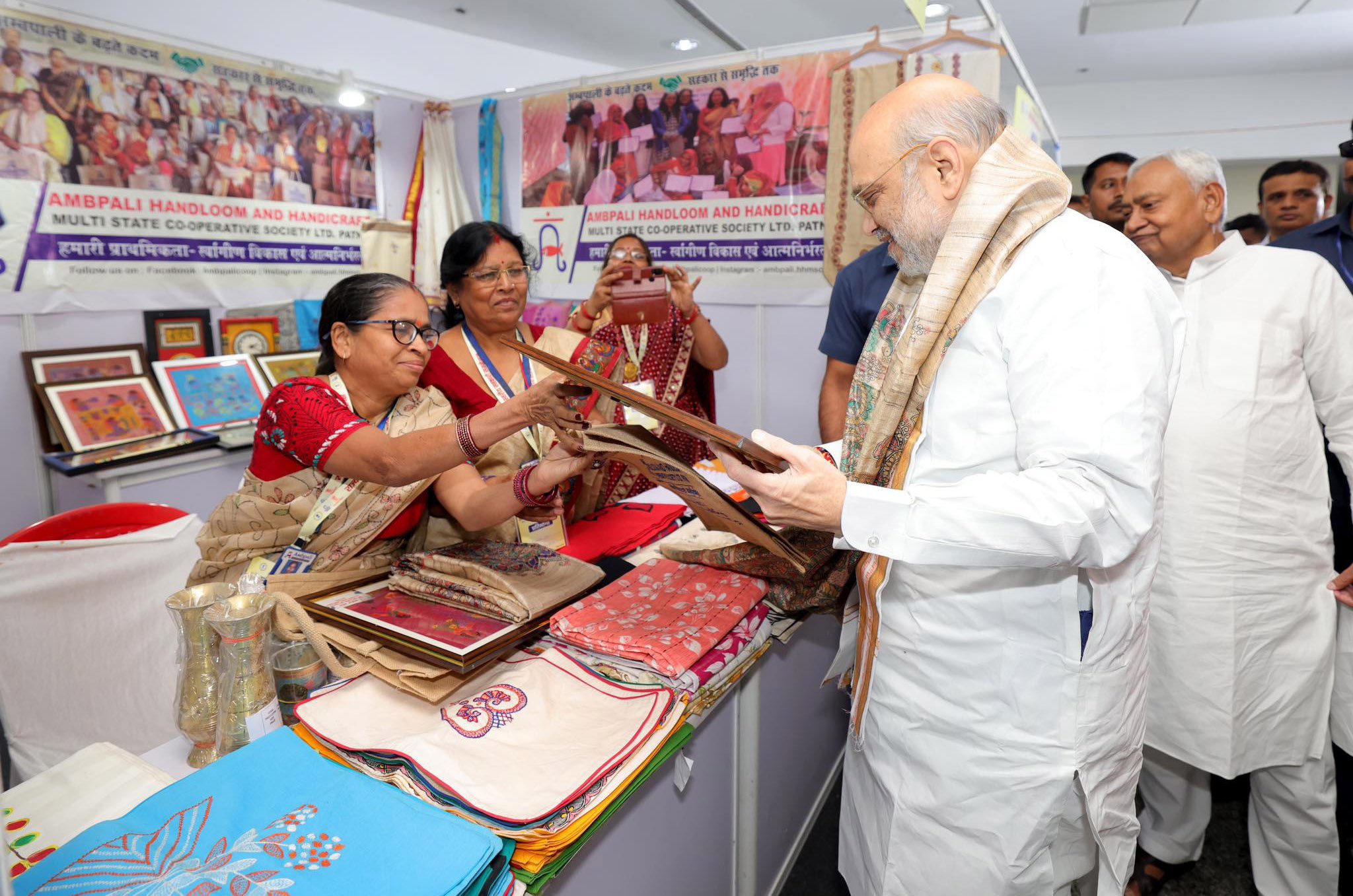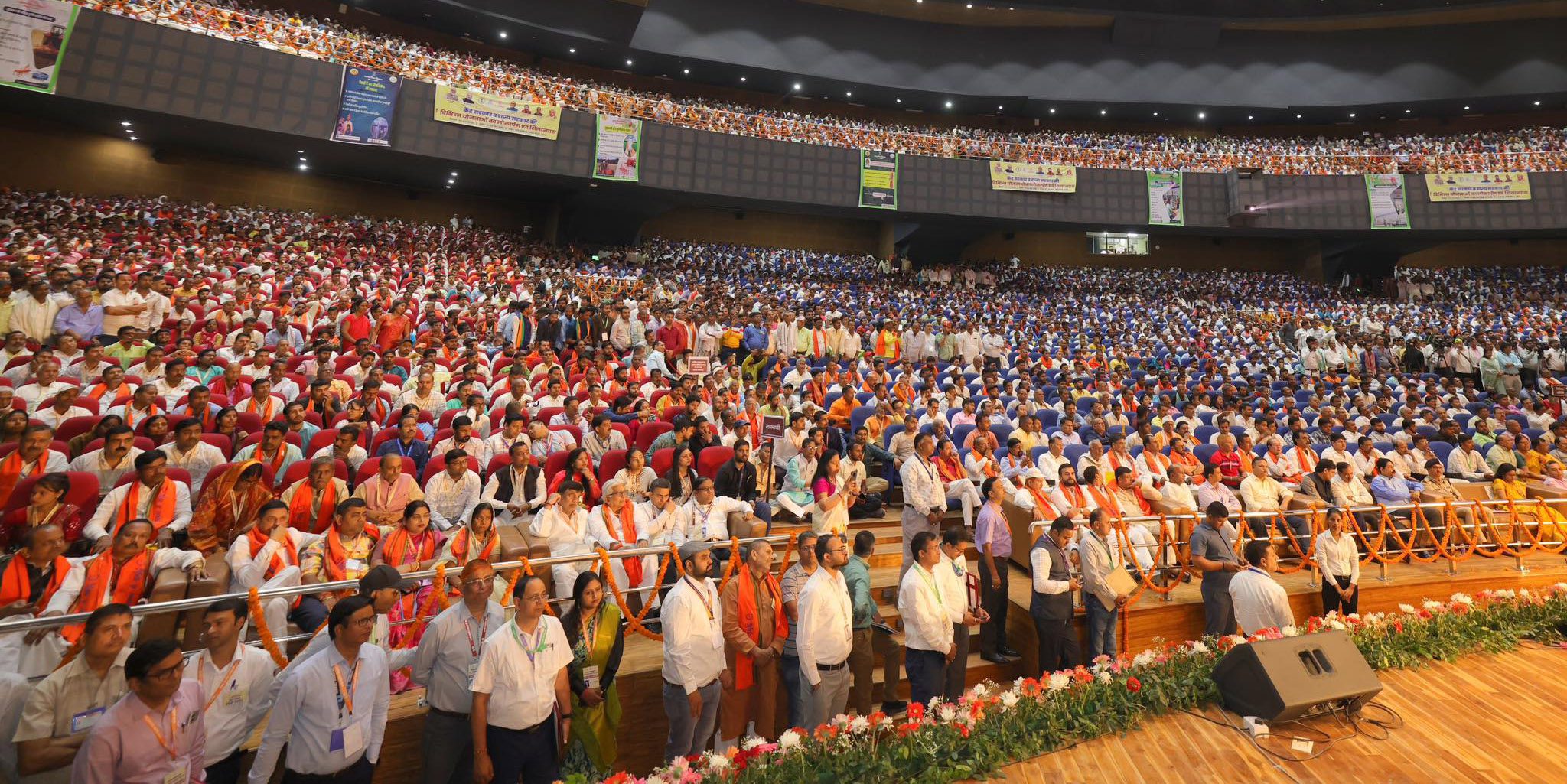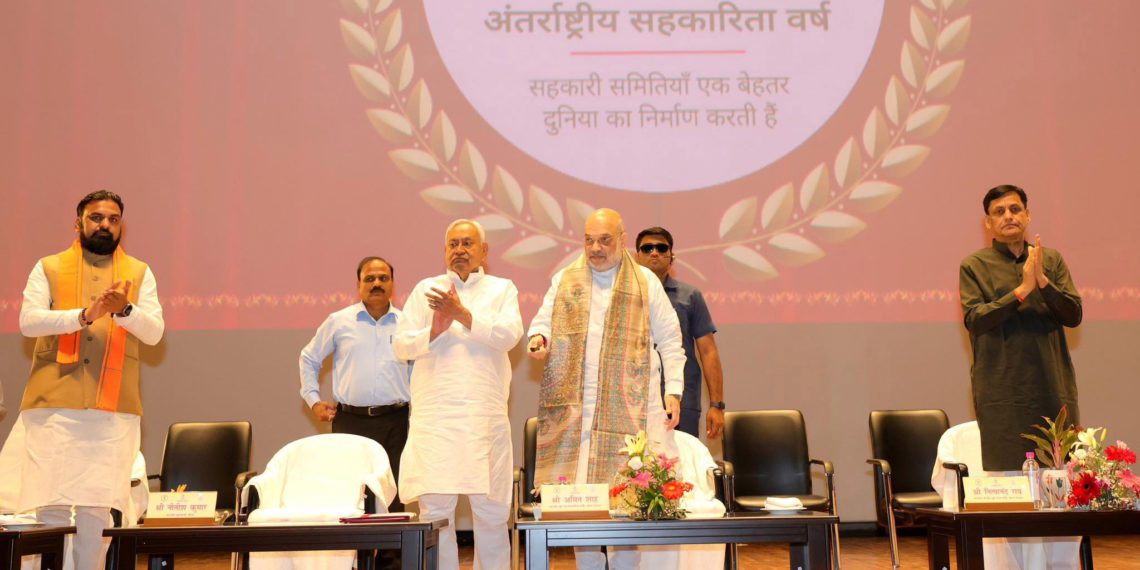Union Home Minister and Minister of Cooperation Amit Shah laid the foundation stone and inaugurated multiple cooperative-driven initiatives in Patna, Bihar. These projects aim to strengthen the cooperative movement in the state and enhance rural economic growth. Bihar Chief Minister Nitish Kumar and several other dignitaries attended this landmark event.
The key cooperative initiatives launched include the expansion of Primary Agricultural Credit Societies (PACS). Under the world’s largest food storage scheme, the foundation was laid for 25 PACS warehouses with a total capacity of 62,500 metric tonnes. This initiative will provide farmers with better storage solutions, reducing post-harvest losses and improving their bargaining power in the market.
A newly constructed hostel building at the Deep Narayan Singh Regional Cooperative Management Institute was inaugurated to facilitate cooperative education and training, ensuring better management practices in the cooperative sector. The Makhana Processing and Marketing Center, established under the Integrated Cooperative Development Project, will boost makhana production and marketability, benefiting local farmers and cooperatives. In celebration of the upcoming International Year of Cooperatives 2025, a web portal was launched to strengthen digital integration within the cooperative sector, enhancing accessibility, transparency, and efficiency in cooperative operations.


The Modi government is also actively working to revive Bihar’s closed sugar mills, which once contributed significantly to the country’s sugar production. Under opposition rule, Bihar’s sugar industry declined sharply, but efforts are now underway to restore it through cooperative-driven approaches.
Additionally, the government has prioritized maize production by establishing a Maize Research Centre with an investment of Rs. 1,000 crore. This initiative will support maize farmers through research, better farming techniques, and direct procurement by the government at the Minimum Support Price (MSP).
Amit Shah stressed that Bihar has immense potential in cooperative-based agriculture, ranking among the top states in the production of litchi, mushrooms, makhana, maize, pulses, and sugarcane. By leveraging cooperatives, these industries can flourish, ensuring economic stability for millions of farmers and rural entrepreneurs.
These cooperative-led developments mark a transformative step in Bihar’s economic landscape, ensuring that farmers, traders, and cooperative societies benefit from modern infrastructure, financial support, and government-backed schemes. This push for cooperative-driven progress reinforces the commitment to rural development and economic self-reliance.














































